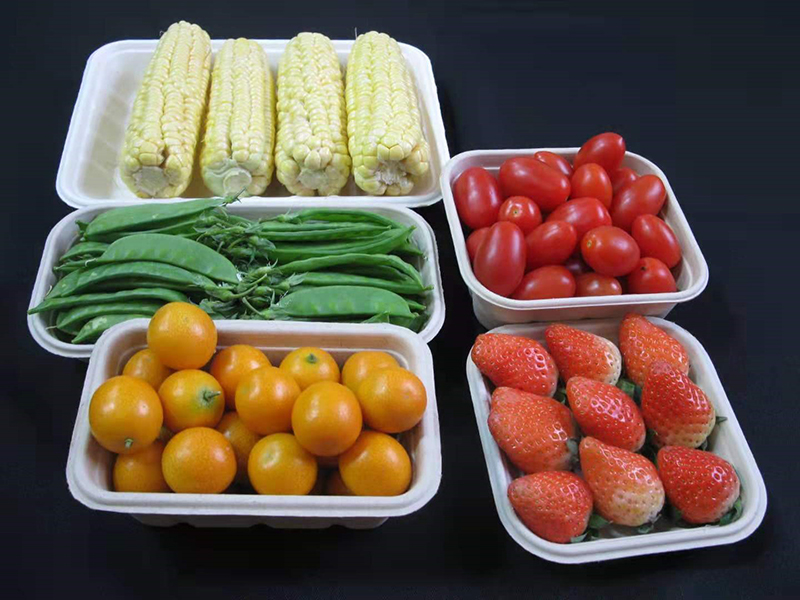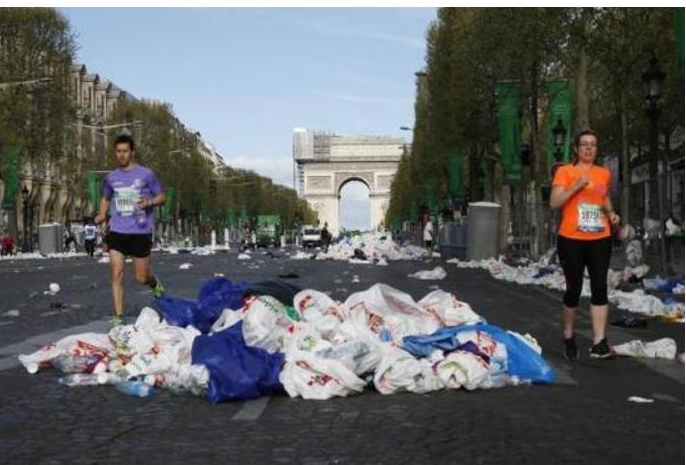News
Biodegradable plastics are now also banned in the European Union as part of the global campaign to ban plastics.
Against the backdrop of the global plastic ban, it was originally envisioned by companies to replace disposable plastics with biodegradable plastics. Plant fiber (pulp) molded products, which can be completely naturally degraded, seem to have a very small share in front of the vociferous biodegradable plastics.
However, the degradation of degradable plastics is conditional. Degradable plastics first need to be recycled and then composted in order to fully degrade. However, only what is valuable can be recycled effectively. Generally degradable plastics will become brittle after 6 months and lose their value for re-use, which means they have no recycling value. If it cannot be recycled for composting, degradable plastics cannot degrade naturally.
Due to the characteristics of biodegradable plastics can not be completely natural degradation, in fact, become one of the culprits of white pollution. July 3 onwards, biodegradable plastics in the European Union has also been banned.
Plant fiber (pulp) molded products are truly naturally degradable and environmentally friendly, and are currently the only viable alternative to some plastic products. For example, in the field of pulp molded tableware packaging, pulp molded industrial packaging is a good substitute for many plastic products.

The Italian newspaper "Chinatown" reports: From July 3, EU member states will have to say goodbye to the use of single-use and oxo-degradable plastics, and will only be allowed to use recyclable plastics, which the European Commission has ruled cannot be put on the EU market, as the Commission believes that plastics are harmful to marine life, biodiversity, and our health, and that reducing the use of single-use plastics will help to protect the health of both people and the planet. health of people and the planet. This policy may greatly affect the lives and work of our Chinese and street friends.
Let's take a look at the items that will gradually be replaced by sustainable alternatives after July 3: for example, balloons, caps on bottles up to 3 liters, polystyrene foam cups, disposable cutlery, straws, plates, and only reusable products are allowed to be used at parties.

The food packaging industry will also be forced to revamp, with food packaging no longer using oxo-degradable plastics, but only paper (which is even better with pulp-molded products).
Then there are sanitary napkins, tampons, wipes, bags, and swabs. Cigarette filters will also change, and plastic tools will be banned from the fishing industry (according to Greenpeace, 640,000 tons of plastic from fishing nets and tools are discarded in the ocean every year, and in fact they're the ones responsible for destroying the oceans.) These products will be controlled by different measures, such as reducing their consumption, and producers paying a "pollution fee".
Of course, such a measure has caused criticism and controversy in many countries, as it will also hit 160,000 jobs in the plastics industry and the entire plastics industry in Italy. In the last few hours, Roberto Cingolani, the Minister for Ecological Transformation, has attacked the European Union's strange definition of a ban on plastics, which allows you to use only recyclable plastics, not biodegradable plastics, while our country, which is a leader in biodegradable plastics, can't use them because of a ridiculous directive that says it's not allowed. We are leading the way in biodegradable plastics, but we can't use them because of a ridiculous directive that says "only recyclable plastics can be used".
This may also affect the export of Chinese commodities, and in the future, the export of plastic products to the EU countries may be subject to restrictions and material requirements. The European Union does pay more attention to the protection of the environment, which is why there are so many famous beaches, beautiful clear sea, lush forests. I don't know if you have noticed, for example, McDonald's fast food, has quietly replaced plastic straws and cup lids with paper lids and paper straws, perhaps in the initial implementation of the measures will be a bit unaccustomed to, but gradually will be accepted as the norm.
 +86 189 2452 1063
+86 189 2452 1063 s-dzhiyuan@163.com
s-dzhiyuan@163.com 18924521063
18924521063




Online Message

Follow Us


Top